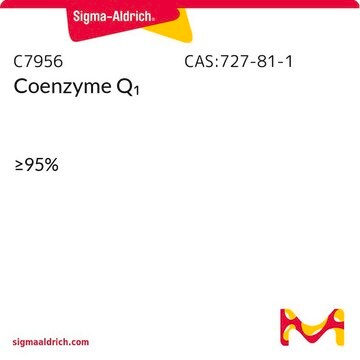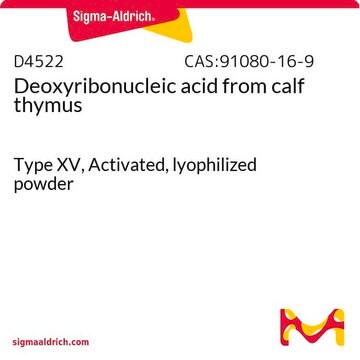D9150
2,3-Dimethoxy-5-methyl-p-benzoquinone
apoptosis inducer
Synonym(s):
Coenzyme Q0
About This Item
Recommended Products
form
powder
mp
58-60 °C (lit.)
storage temp.
2-8°C
SMILES string
COC1=C(OC)C(=O)C(C)=CC1=O
InChI
1S/C9H10O4/c1-5-4-6(10)8(12-2)9(13-3)7(5)11/h4H,1-3H3
InChI key
UIXPTCZPFCVOQF-UHFFFAOYSA-N
Looking for similar products? Visit Product Comparison Guide
General description
Application
- as a tau protein fibrillization inducer to determine the regions of tau involved in the formation of paired helical filaments (PHFs)
- as a component in buffer B for cytochrome oxidation assay with subsaturating light
- in the RPMI-1640 medium for 2,3-bis-(2-methoxy-4-nitro-5-sulphenyl)-(2H)-tetrazolium-5-carboxanilide (XTT) assay to quantify antifungal activity
Biochem/physiol Actions
Signal Word
Warning
Hazard Statements
Precautionary Statements
Hazard Classifications
Eye Irrit. 2 - Skin Irrit. 2 - STOT SE 3
Target Organs
Respiratory system
Storage Class Code
11 - Combustible Solids
WGK
WGK 2
Flash Point(F)
Not applicable
Flash Point(C)
Not applicable
Personal Protective Equipment
Certificates of Analysis (COA)
Search for Certificates of Analysis (COA) by entering the products Lot/Batch Number. Lot and Batch Numbers can be found on a product’s label following the words ‘Lot’ or ‘Batch’.
Already Own This Product?
Find documentation for the products that you have recently purchased in the Document Library.
Customers Also Viewed
Our team of scientists has experience in all areas of research including Life Science, Material Science, Chemical Synthesis, Chromatography, Analytical and many others.
Contact Technical Service














